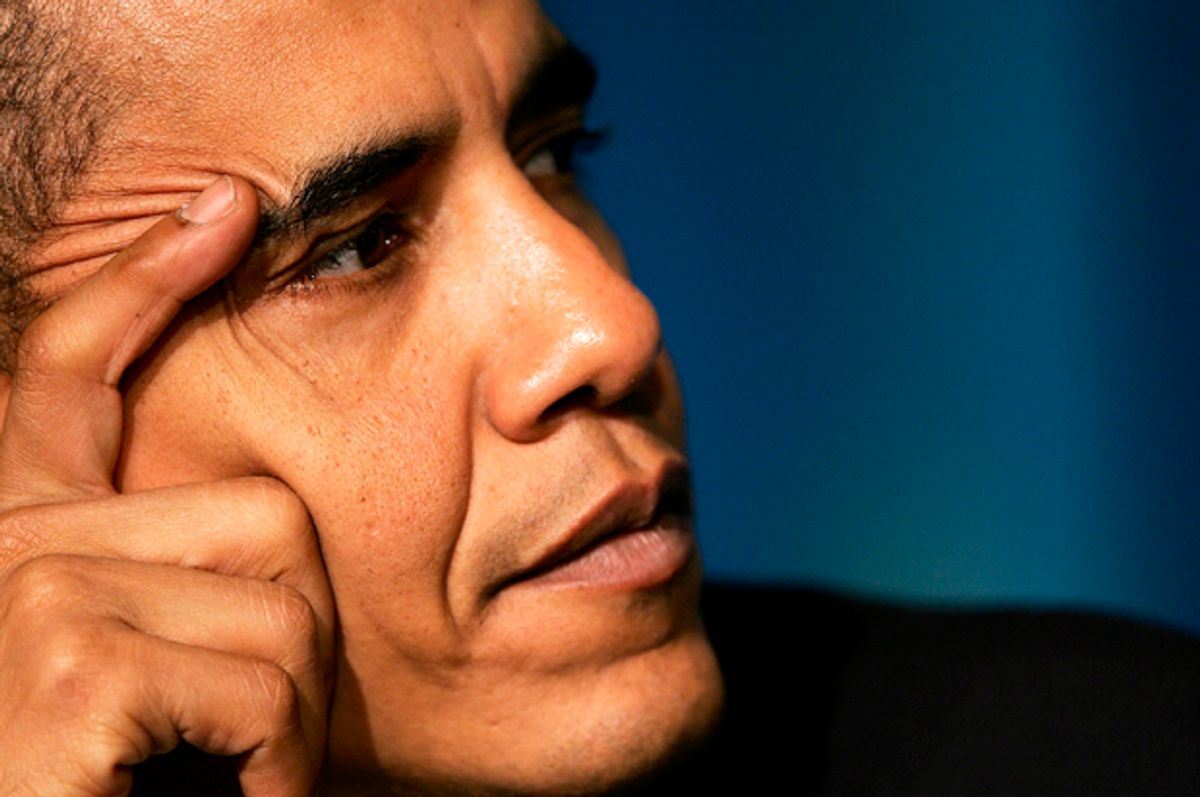President Barack Obama leaves office this week with a number of significant achievements, many of them involving the economy, which was a smoking ruin when George W. Bush handed the presidency over to him. Neither Obama’s foreign policy nor the Affordable Care Act have been unalloyed triumphs, but given that preceding president’s record and the likely policies of the president-elect, we may look back at the Obama years as a period of relative global stability, and one in which 20 million people long shut out of medical insurance finally received coverage.
But one place where Obama has stumbled — even that metaphor may overstates his commitment — is with cultural policy. If he has had any real commitment to music and theater and literature and the rest of it, it’s news to the rest of us. The kind of basic rhetorical — and in some cases, financial and institutional — support that John F. Kennedy and Richard Nixon gave to the arts and humanities seem to be alien to the way this guy governs.
Things started pretty badly for the Obama administration and culture. The president’s appointment for chair of the National Endowment for the Arts, former Broadway producer Rocco Landesman, was hardly the most effective steward the endowment has ever had. Landesman tried to undercut the American Jazz Masters program, attempted to kill its fellowships for folk artists and did no favors for successful broad-appeal programs like the Big Read and the national Shakespeare effort. If not for Congress, which fought Landesman and reversed some of his bad calls, he would have done even more damage. He acted like a cartoonish New York blowhard — a kind of George Steinbrenner of the arts — insulting small-city nonprofits and audiences outside the megalopolises.
A year after the conclusion of his tenure, the NEA’s historic building — the Romanesque old post office in Washington — had been leased to . . . Donald Trump. It is now the Pennsylvania Avenue Trump Tower.
Funding for the NEA and National Endowment for the Humanities — they tend to rise and fall in lockstep, like preteen twins who insist that Dad give them the same allowance — generally rose during the Bush years and generally fell during Obama’s tenure.
When Obama came into office, he inherited Bush’s funding level, about $155 million annually; the NEA's budget has bounced around since and is now at $148 million. Cumulative inflation across the Obama era is about 12.5 percent, so the numbers are even starker than that: Bush’s final budget is nearly $175 million in today’s dollars).
And the NEA budget under Nixon — a vile, hateful man and often an incompetent as well — was many times higher, in inflation-adjusted figures, than under Obama.
But a presidency isn’t just about policies and budgets and legislation: It’s about setting a tone and beating a drum — what presidential historian Richard Neustadt has called using the prestige of the presidency. "If art is to nourish the roots of our culture,” President Kennedy said at Amherst College in 1963, “society must set the artist free to follow his vision wherever it takes him. We must never forget that art is not a form of propaganda; it is a form of truth.” Jackie Kennedy and Lyndon Johnson followed through on JFK’s commitment.
But when it comes to the arts and artists, the president mostly just let them speak for themselves.
This is especially frustrating in the case of jazz. How hard would it have been for the nation’s first black president — and an unusually young, intelligent, urbane and even hip president as well — to make a few high-profile speeches about the the art form that just about every civilized country takes more seriously than we do?
Obama’s various Spotify playlists have included Nina Simone, acoustic Miles Davis, Charles Mingus and other jazz titans. (Not a Kenny G in sight.) So why has he not used his office as a bully pulpit in support of a black-derived art that he seems to enjoy and that could use the support. Whether he is a retro-'50s guy who likes Wynton Marsalis or a forward looking jazz-meets-hip-hop kinda guy and likes Flying Lotus doesn’t much mater. He just needed to do something. Maybe he doesn't really listen or doesn’t care — or doesn’t care that other people don’t care.
Why did a man who is one of the office’s greatest, most reflective writers since Abraham Lincoln or Teddy Roosevelt, someone sussed enough to be into Janelle Monáe and Courtney Barnett, and musical enough to be able to belt out Al Green songs, end up mostly punting on culture and the humanities? (To his credit, Obama had several eloquent public conversations with the novelist Marilyn Robinson.)
Of course, the president had a fairly time-consuming introduction to the presidency: During the closing days of the Bush administration, the nation was losing hundreds of thousands of jobs a month. Less than a week after Obama took over, the country lost more than 65,000 jobs in a single day. It took a few years for the president and his lieutenants to bend things back to a healthy shape: Since the recovery began in January 2010, the U.S. economy has produced more than 14 million jobs.
So the guy sort of had his hands full. And his efforts to reverse George W. Bush’s economic mistakes and tame the misbegotten Iraq War have been largely, if incompletely, successful. But unless the president simply thinks that culture is a purely capitalistic affair — that any sort of substantial art should be able to fend for itself in the marketplace — he has in some ways left the state of the arts poorer than he found it.
We’ll miss this eloquent and dignified president for a lot of things. But not for that.



Shares